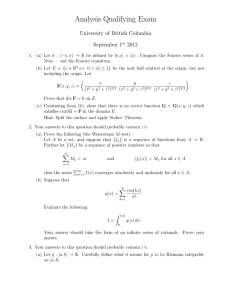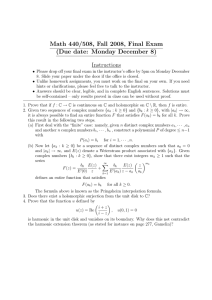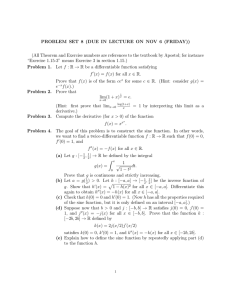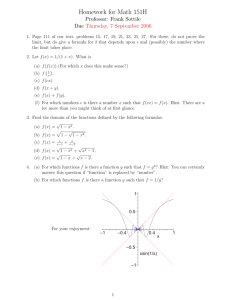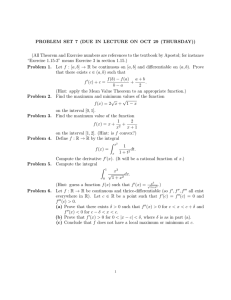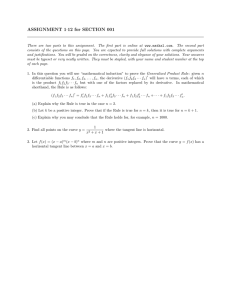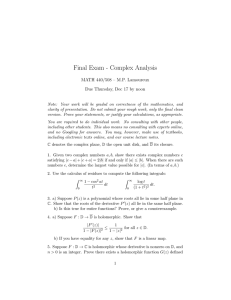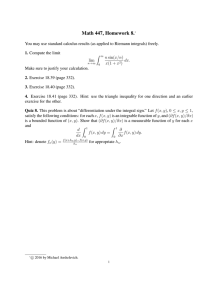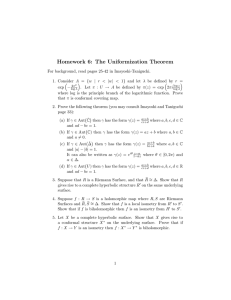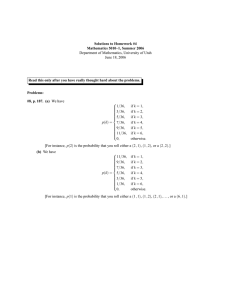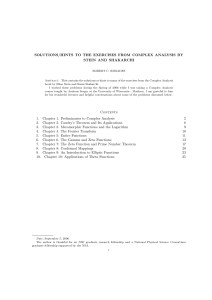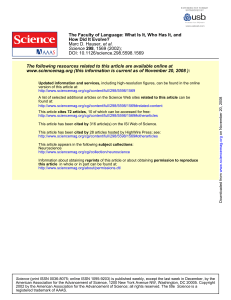Take-home Final - Math 440/508, Fall 2014
advertisement
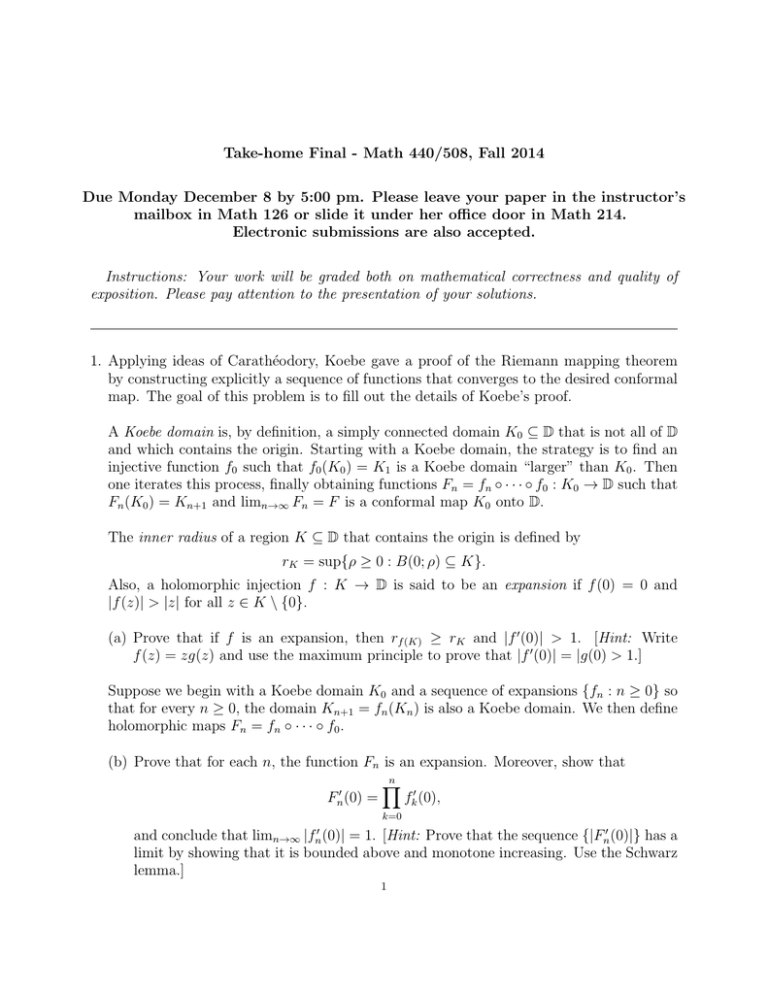
Take-home Final - Math 440/508, Fall 2014
Due Monday December 8 by 5:00 pm. Please leave your paper in the instructor’s
mailbox in Math 126 or slide it under her office door in Math 214.
Electronic submissions are also accepted.
Instructions: Your work will be graded both on mathematical correctness and quality of
exposition. Please pay attention to the presentation of your solutions.
1. Applying ideas of Carathéodory, Koebe gave a proof of the Riemann mapping theorem
by constructing explicitly a sequence of functions that converges to the desired conformal
map. The goal of this problem is to fill out the details of Koebe’s proof.
A Koebe domain is, by definition, a simply connected domain K0 ⊆ D that is not all of D
and which contains the origin. Starting with a Koebe domain, the strategy is to find an
injective function f0 such that f0 (K0 ) = K1 is a Koebe domain “larger” than K0 . Then
one iterates this process, finally obtaining functions Fn = fn ◦ · · · ◦ f0 : K0 → D such that
Fn (K0 ) = Kn+1 and limn→∞ Fn = F is a conformal map K0 onto D.
The inner radius of a region K ⊆ D that contains the origin is defined by
rK = sup{ρ ≥ 0 : B(0; ρ) ⊆ K}.
Also, a holomorphic injection f : K → D is said to be an expansion if f (0) = 0 and
|f (z)| > |z| for all z ∈ K \ {0}.
(a) Prove that if f is an expansion, then rf (K) ≥ rK and |f 0 (0)| > 1. [Hint: Write
f (z) = zg(z) and use the maximum principle to prove that |f 0 (0)| = |g(0) > 1.]
Suppose we begin with a Koebe domain K0 and a sequence of expansions {fn : n ≥ 0} so
that for every n ≥ 0, the domain Kn+1 = fn (Kn ) is also a Koebe domain. We then define
holomorphic maps Fn = fn ◦ · · · ◦ f0 .
(b) Prove that for each n, the function Fn is an expansion. Moreover, show that
n
Y
Fn0 (0) =
fk0 (0),
k=0
limn→∞ |fn0 (0)|
and conclude that
= 1. [Hint: Prove that the sequence {|Fn0 (0)|} has a
limit by showing that it is bounded above and monotone increasing. Use the Schwarz
lemma.]
1
2
(c) Argue that without loss of generality one may choose the expansions {fn } such that
fn0 (0) > 0. Using this, show that if the sequence is osculating, that is, if rKn → 1 as
n → ∞, then Fn converges uniformly on compact subsets of K0 to a conformal map
F : K0 → D. [Hint: If rF (K0 ) ≥ 1 then F is surjective.]
To construct the desired osculating sequence we shall use the automorphisms ψα (z) =
(α − z)/(1 − αz).
(d) Given a Koebe domain K, choose a point α ∈ D on the boundary of K such that
|α| = rK and also choose β ∈ D such that β 2 = α. Let S denote the square root map,
so that S(0) = 0. Why is the function S ◦ ψα well-defined and holomorphic on K?
Prove that the function f : K → D defined by f (z) = ψβ ◦ S ◦ ψα is an expansion.
√
Moreover, show that |f 0 (0)| = (1 + rK )/(2 rK ). [Hint: Apply the Schwarz lemma to
the inverse function, namely ψα ◦ g ◦ ψβ where g(z) = z 2 .]
(e) Use part (d) to construct the desired sequence and complete the proof of the Riemann
mapping theorem.
